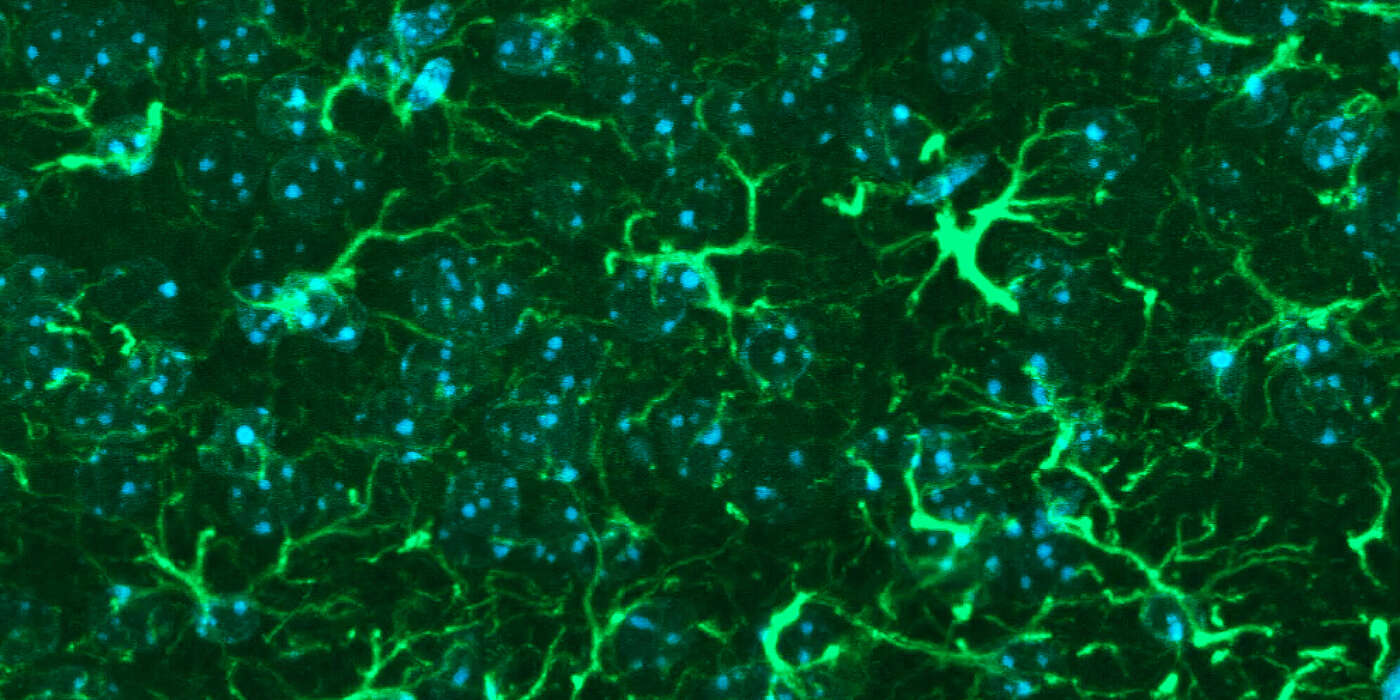Cancer cells are characterized by uncontrolled growth and cell division. A glioblastoma is a particularly aggressive form of brain tumor, which results from uncontrolled growth of so-called glial cells. Glial cells surround and provide support for neurons and play a major role in the supply of energy and the transmission of information.
Cancer patients show altered protein pattern
A group of researchers from the Biozentrum and the Departments of Biomedicine and Neurosurgery at the University of Basel have now analyzed the proteome – the complete set of proteins – of various glioblastomas. "Our goal was to use high-resolution mass spectrometry to analyze changes in the protein profile in biopsies from patients with glioma. The dataset piling up from this endeavor was immense,” explains the coordinator of the study, the former Co-director of the Proteomics Core Facility at the Biozentrum, Paul Jenö.
Inhibited growth receptor degradation promotes uncontrolled cell growth
For their study, the researchers used biopsies from patients suffering from glioblastomas of varying grades. The data showed that in glioma patients the concentrations of a certain group of proteins was markedly downregulated. "These proteins regulate the degradation of the growth receptor EGFR. Low concentrations of these proteins, as seen in these patients, reduce the receptor uptake into the cells and keep intracellular signaling pathways high. Thus, resulting in uncontrolled cell growth", says Dominik Buser, first author of the study.
In summary, gliomas were shown to inhibit endocytosis and thus prolong the length of time that receptors remain on the cell surface. These remaining active growth receptors lead to uncontrolled cell growth. “So the glioblastoma uses the inhibition of growth factor receptor degradation to promote its own rapid and aggressive growth,” says Jenö. The study shows once again the strategies used by cancer cells to turn off molecular processes in order to drive their own growth. These findings thus contribute to the understanding of the molecular processes of cancer growth and could provide new avenues for treatment approaches.
Original publication:
Dominik P. Buser, Marie-Françoise Ritz, Suzette Moes, Cristobal Tostado, Stephan Frank, Martin Spiess, Luigi Mariani, Paul Jenö, Jean-Louis Boulay and Gregor Hutter. Quantitative proteomics reveals reduction of endocytic machinery components in gliomas. EBioMedicine, published online July 19, 2019.
Contact: Communications, Heike Sacher



